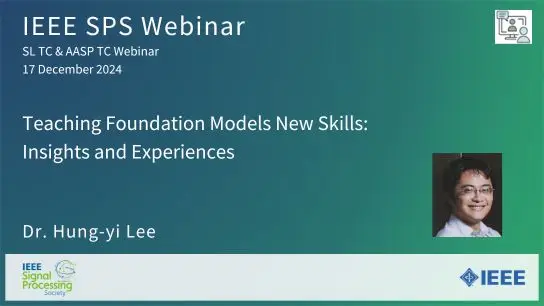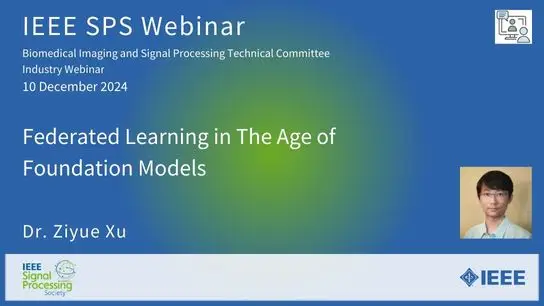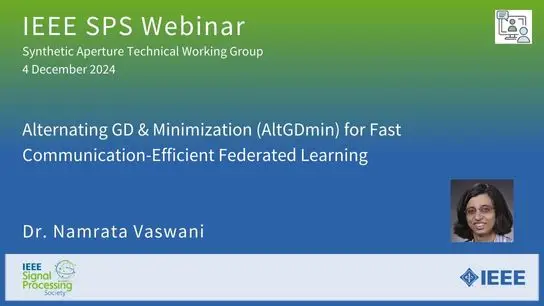(Slides) Federated Learning Using Three-Operator ADMM
Shashi Kant, José Mairton B. da Silva Jr.
-
Members: FreeSPS
IEEE Members: $11.00
Non-members: $15.00Pages/Slides: 36
Federated learning (FL) has emerged as an instance of distributed machine learning paradigm that avoids the transmission of data generated on the users’ side. Although data is not transmitted, edge devices have to deal with limited communication bandwidths, data heterogeneity, and straggler effects due to the limited computational resources of users’ devices. A prominent approach to overcome such difficulties is FedADMM, which is based on the classical two-operator consensus alternating direction method of multipliers (ADMM). The common assumption of FL algorithms, including FedADMM, is that they learn a global model using data only on the users’ side and not on the edge server. However, in edge learning, the server is expected to be near the base station and often has direct access to rich datasets. In this webinar, the presenters argue that it is much more beneficial to leverage the rich data on the edge server then utilizing only user datasets. Specifically, they show that the mere application of FL with an additional virtual user node representing the data on the edge server is inefficient. They propose FedTOP-ADMM, which generalizes FedADMM and is based on a three-operator ADMM-type technique that exploits a smooth cost function on the edge server to learn a global model in parallel to the edge devices. Their numerical experiments indicate that FedTOP-ADMM has substantial gain up to 33% in communication efficiency to reach a desired test accuracy with respect to FedADMM, including a virtual user on the edge server.


